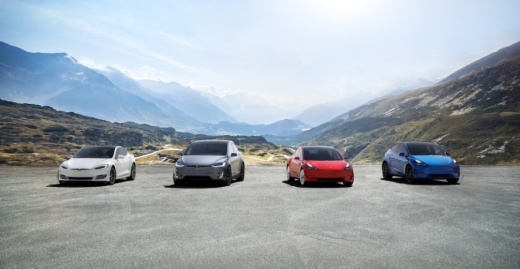Tesla has identified a 2,100-acre site along the Colorado River as a potential location for its next gigafactory, where the company’s new Cybertruck and other vehicle models would be produced. While Tesla simultaneously eyes the Tusla, Okla. area, Travis County and DVISD could propose incentive agreements that would soften the impact of Texas’ comparatively high property tax rates. Without such incentives, Tesla representatives have said a factory in Texas would not be economically feasible.
DVISD trustees, staff, Tesla representatives and community members all weighed in on the district’s proposed tax agreement at a June 25 public hearing.
The role of recapture
DVISD Superintendent Annette Tielle presented on the proposed Chapter 313 agreement, which would limit the property taxes Tesla paid toward the district’s maintenance and operations for a 10-year period by capping the taxable value of Tesla’s project at $80 million. That would be a substantive decrease from the estimated $600 million the project would be worth.
With the $80 million cap, DVISD would rake in around $776,000 annually from Tesla in maintenance and operations taxes in addition to a supplemental $1 million annual donation from Tesla to DVISD’s maintenance & operations fund. Currently, DVISD receives $48,500 per year from the same site under its current use as a sand and gravel mining operation.
According to Tielle, the Chapter 313 agreement would prevent the district from becoming subject to recapture, despite the increase in tax revenue. Also known as Texas’ Robin Hood Law, recapture redistributes revenue from wealthy districts where tax income exceeds state per-student funding averages. From that view, DVISD would not lose tax revenue from Tesla by entering a Chapter 313 agreement, although other low-income districts ultimately could.
Protecting would-be workers
Tesla has said it will bring a number of academic and job-training opportunities to DVISD, including an apprenticeship program that would act as a pipeline for high school students to gain employment at Tesla after graduation. Additionally, Tesla would collaborate with the district on automation curriculum in robotics, engineering and/or manufacturing that would give students skills for employment at the company.
“We want our students to have the best of the best,” Tielle said. “This is something we know would take our students to very high heights.”
DVISD Chief Academic Officer Kerry Gain also praised these opportunities, particularly the benefits the district’s new robotics program would see, and said many students are already in computer science and related classes that make them prime candidates for Tesla’s student programs.
“We have 2,100 students right now in Del Valle who are primed and ready for the support that Tesla would provide,” Gain said.
According to Gain, 115 graduates from a high school that partners with Tesla’s gigafactory in Sparks, Nev. have been employed by the company.
However, some community members who spoke during public comment at the June 25 meeting expressed concern that Tesla would not offer adequate protections for DVISD graduates entering the workforce, citing past Occupational Safety & Health Administration violations and efforts to quash union organization.
“Frankly, I think Tesla is promising the world, but they have yet to promise that they will treat their future workers, our students, right,” local resident Alex Murphy said.
Many speakers from the community called for the district to request contractual promises for the treatment of workers, something that district representatives said was not legally allowed.
“As a community, we deserve a partner that will put those promises in writing,” said Jeremy Hendricks, an Austin resident and representative for the Southwest Laborer’s District Council. “Please use your positions to ask the hard questions of Tesla.”
Meanwhile, Tesla representatives defended their record on worker safety and treatment at the hearing, responding to similar accusations leveled during public comment at a June 23 meeting of the Travis County Commissioners Court, which is also considering incentives for the company.
“We’re on track to participate in OSHA’s voluntary protection program in Nevada and California, and we would expect to do the same in any factory we locate in, whether it’s in Texas or elsewhere,” said Rohan Patel, Tesla senior global director of public policy and business development.
Privileging community voices
Throughout DVISD’s public hearing, both district representatives and community members said they were pleased to have the eyes of the larger Austin-Travis County area on Del Valle, an economically disadvantaged area that is often overlooked, according to multiple speakers.
“I’ve never seen so much attention given to the Del Valle area and the Del Valle community since [Tesla’s] announcement of possibly relocating here. To all of those who have ignored us for decades, welcome to Del Valle,” DVISD trustee Susanna Woody said.
Del Valle community members, including Daniel Segura-Kelly, a member of several local democratic organizations, also encouraged Tesla to take stock of the opinions of Del Valle area residents while fielding feedback from across Austin and Central Texas.
“As history tells us, East Austin will hear from many folks who don’t live in East Austin but have a lot of opinions about what East Austin needs,” Segura-Kelly said in a statement directed toward Tesla. “I hope that you’ll continue to speak for us, the folks who live here, who raise our families here and want to grow here.”





